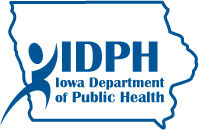No Ebola Cases in Iowa; Preparation Continues
October 21st, 2014 by Ric Hanson
The Iowa Department of Public Health (IDPH) continues to work closely with local public health and health care professionals, state entities and the CDC in response and preparation to the West African Ebola situation. Despite what you might read on social media or hear around the water cooler, there are and have been NO cases of Ebola in Iowa.
Last week, screening of travelers coming from Sierra Leone, Guinea, and Liberia began at international airports at the time of arrival in the U.S. They are asked about things like current symptoms and possible exposures to patients with Ebola while in West Africa. If needed, appropriate action is taken at that time; for example, travelers with symptoms consistent with Ebola are not being allowed to continue until they are medically assessed. If they are well, they are given information about what to do once they arrive at their final destination – such as Iowa. Meanwhile, in Iowa, public health officials are notified of the arrival of the traveler. Iowa officials then re-interview the traveler to confirm their health status and their risk of exposure to Ebola. Appropriate action is then taken in Iowa, such as the traveler staying at home and away from others for 21 days, or
taking their temperature and reporting this to public health for 21 days.
This will lower the risk of Ebola spreading in Iowa, and should reassure the public that extraordinary action is being taken by the U.S. Public Health system to protect them. Other actions taken by IDPH over the past several weeks include several webinars for local public health agencies, emergency responders, hospitals, health care providers, and state agencies regarding transmission of the Ebola virus and how to prepare for any suspected cases.
Iowans should remember that Ebola is not transmitted through water, air, food or casual contact. Ebola is spread through direct contact with bodily fluids of a sick person, or exposure to objects such as needles that have been contaminated. In addition:
* People are not contagious after exposure unless they develop symptoms.
* Symptoms may appear anywhere from 2 to 21 days after exposure to Ebola, but the
average is 8 to 10 days.





